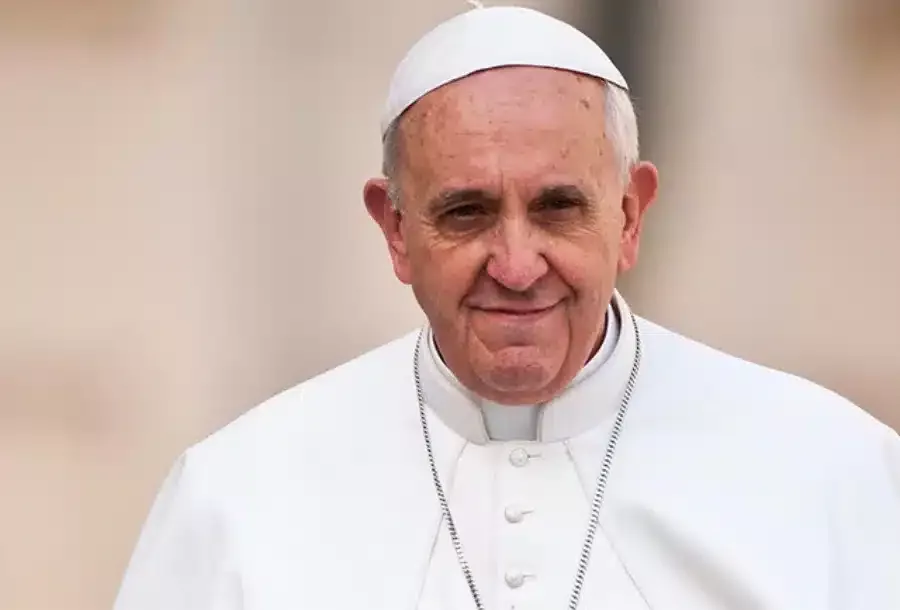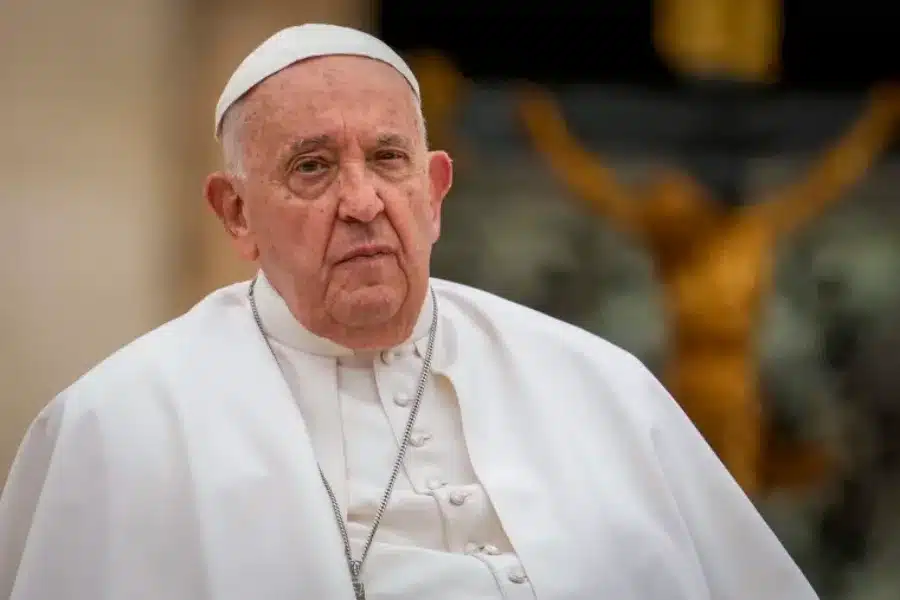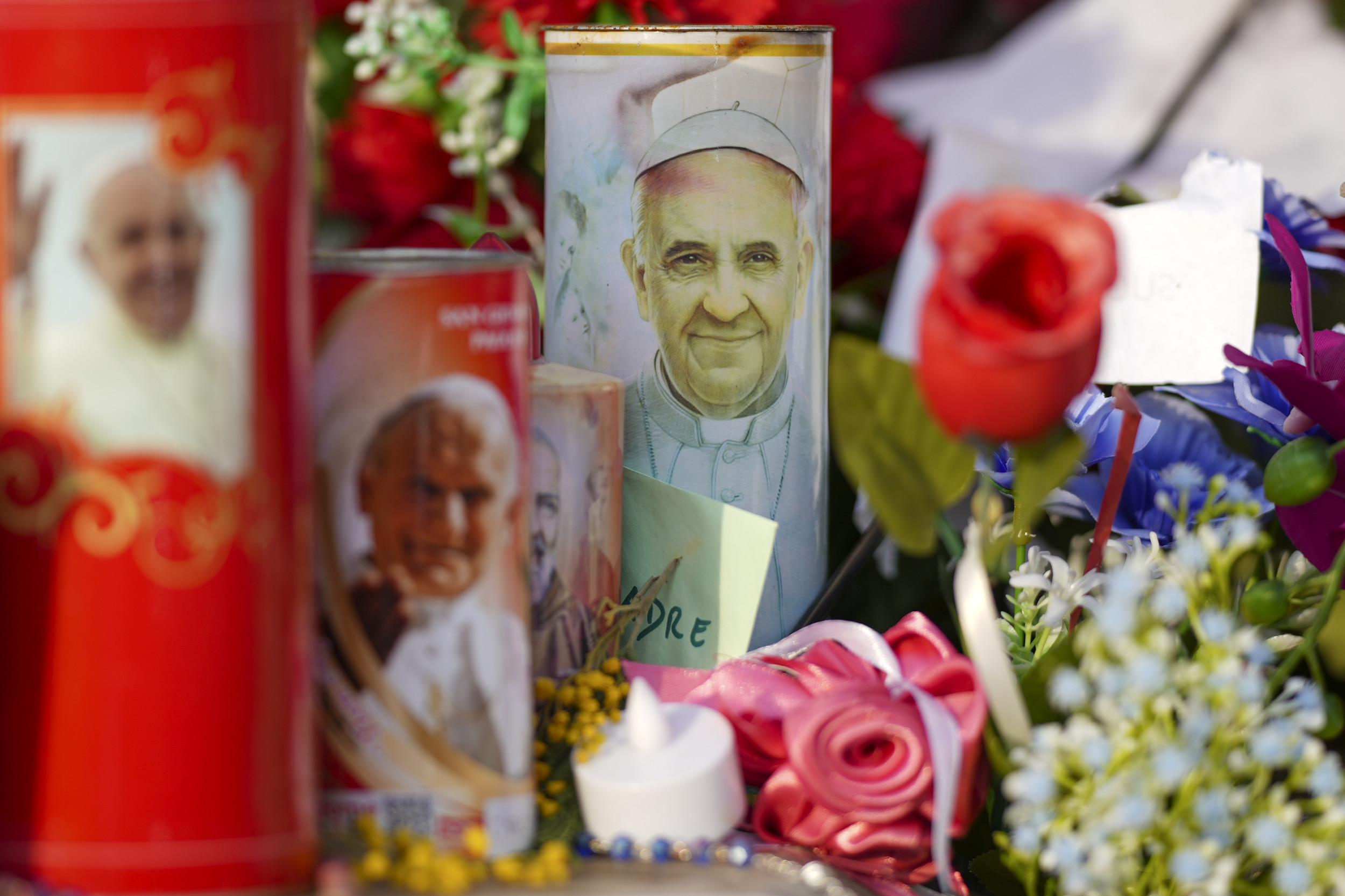When it comes to Pope Francis' treatment adjusted for health, the world watches closely as the spiritual leader navigates his medical journey. The 86-year-old pontiff has been a beacon of hope and resilience, but his recent health adjustments have sparked global interest. From knee issues to routine medical check-ups, every detail of his treatment is meticulously planned by a team of top medical professionals. This article dives deep into the health protocols surrounding the Pope, shedding light on how the Vatican ensures his well-being while he continues his mission to inspire millions worldwide.
As one of the most beloved figures in modern history, Pope Francis has captured hearts with his humble demeanor and progressive outlook. However, like anyone else, he faces health challenges that require careful attention. His commitment to serving others remains unwavering, even as adjustments are made to accommodate his medical needs. Understanding these adjustments gives us insight into the dedication and care provided by those responsible for his health.
From the Vatican’s state-of-the-art medical facilities to the expertise of world-renowned doctors, every step in Pope Francis' treatment is designed to ensure his longevity and ability to lead the Catholic Church effectively. This article will explore the specifics of his health regimen, the reasons behind certain adjustments, and the impact of these changes on his daily life and responsibilities. Let’s dive in and uncover the truth behind the Pope’s health management.
Read also:Jets Secure Top Talent In Trade A Gamechanging Move For The Future
Table of Contents:
- Biography of Pope Francis
- Recent Health Updates
- Treatment Adjustments
- Medical Team and Protocols
- Daily Routine and Health Management
- Impact on Leadership
- Long-Term Care Plans
- Public Reactions
- Challenges in Health Management
- Conclusion
Biography of Pope Francis
Before we delve into Pope Francis' treatment adjusted for health, let’s take a moment to appreciate the man behind the papacy. Born Jorge Mario Bergoglio on December 17, 1936, in Buenos Aires, Argentina, he is the first Pope from the Americas and the first Jesuit to hold the position. His life has been marked by humility, compassion, and a deep commitment to social justice.
Here’s a quick look at his personal details:
| Name | Pope Francis (Jorge Mario Bergoglio) |
|---|---|
| Birthdate | December 17, 1936 |
| Place of Birth | Buenos Aires, Argentina |
| Religious Order | Jesuit |
| Papacy Began | March 13, 2013 |
Early Life and Journey to the Papacy
Pope Francis grew up in a middle-class family and initially pursued chemical engineering. However, a life-changing experience during a Jesuit retreat led him to enter the priesthood. His rise through the ranks of the Church was marked by a commitment to simplicity and service. By the time he was elected Pope, he was already well-known for his progressive views and dedication to the poor.
Recent Health Updates
As of late 2023, Pope Francis' treatment adjusted for health has been a topic of discussion among both the media and the faithful. The Pope has faced several health challenges, including a knee issue that has affected his mobility. Recent updates indicate that his medical team has made adjustments to his treatment plan to better manage these conditions.
In July 2023, Pope Francis underwent a successful operation to address a knee condition that had been causing him significant discomfort. The procedure was part of a broader strategy to improve his quality of life and ensure he can continue his duties without unnecessary pain. While the exact nature of the operation remains confidential, the Vatican has assured the public that the Pope is recovering well.
Read also:March Madness Musk Protest Replaces Game
Specific Health Conditions
Some of the key health conditions affecting Pope Francis include:
- Knee issues requiring surgical intervention
- Chronic respiratory problems
- Previous removal of a lung lobe
These conditions necessitate careful monitoring and regular medical check-ups. The Pope's medical team works tirelessly to ensure that any potential issues are addressed promptly and effectively.
Treatment Adjustments
Adjustments to Pope Francis' treatment plan reflect a proactive approach to managing his health. The Vatican’s medical team has implemented several changes to ensure the Pope’s well-being, including modifications to his daily routine, dietary habits, and physical activity levels.
One significant adjustment involves the Pope’s mobility. To reduce strain on his knee, he now uses a wheelchair more frequently during public appearances. This decision was made to preserve his energy and prevent further injury. Additionally, his schedule has been streamlined to allow for more rest and recovery time.
Dietary Changes
Pope Francis' diet has also been adjusted to support his overall health. His meals now focus on nutrient-rich foods that promote healing and strength. Foods high in antioxidants, such as fruits and vegetables, are emphasized, while processed foods are minimized. These dietary changes are part of a holistic approach to health management.
Medical Team and Protocols
Behind Pope Francis' treatment adjusted for health is a team of highly skilled medical professionals. The Vatican boasts a state-of-the-art medical facility staffed by doctors, nurses, and specialists who are dedicated to the Pope’s care. These experts collaborate with international medical authorities to ensure the highest standard of treatment.
Protocols for managing the Pope’s health are rigorous and comprehensive. Regular check-ups, advanced diagnostic tests, and consultations with global experts are all part of the routine. This level of care ensures that any health concerns are addressed promptly and efficiently.
Vatican Medical Facilities
The Vatican’s medical facilities are equipped with cutting-edge technology and staffed by professionals who specialize in geriatric care, orthopedics, and respiratory medicine. These resources enable the medical team to provide the Pope with the best possible care, tailored to his unique needs.
Daily Routine and Health Management
Pope Francis' daily routine has been carefully adjusted to accommodate his health needs. While he continues to fulfill his spiritual duties, certain modifications have been made to ensure he maintains a balance between work and rest. For example, his public appearances are now scheduled strategically to minimize physical strain.
Meditation and prayer remain integral parts of his day, providing both spiritual and mental health benefits. The Pope also engages in light physical activity, such as walking, to maintain mobility and strength. These activities are closely monitored by his medical team to prevent overexertion.
Mental Wellness
In addition to physical health, mental wellness is a priority for Pope Francis. The Pope’s spiritual practices, combined with support from his close circle, help him maintain a positive outlook despite the challenges he faces. His resilience serves as an inspiration to millions around the world.
Impact on Leadership
Pope Francis' treatment adjusted for health has had a noticeable impact on his leadership style. While he continues to lead with the same compassion and conviction, his approach has become more measured and deliberate. This shift reflects a deeper understanding of the importance of self-care in leadership roles.
His ability to adapt and remain effective despite health challenges underscores his strength as a leader. Pope Francis continues to inspire through his words and actions, demonstrating that leadership is not just about physical presence but also about spiritual and emotional connection.
Continued Ministry
Despite health adjustments, Pope Francis remains deeply committed to his ministry. His messages of hope, love, and unity continue to resonate with people of all faiths. The Pope’s ability to lead while managing health challenges is a testament to his dedication and resilience.
Long-Term Care Plans
Looking ahead, the Vatican has outlined long-term care plans to support Pope Francis' health. These plans include ongoing medical evaluations, advancements in treatment options, and continued adjustments to his daily routine as needed. The goal is to ensure that the Pope remains healthy and active for as long as possible.
Research into new medical technologies and treatments is also a priority. The Vatican collaborates with leading medical institutions worldwide to stay informed about the latest developments in healthcare. This proactive approach ensures that Pope Francis receives the best possible care, both now and in the future.
Future Treatment Options
Potential future treatments for Pope Francis may include advancements in regenerative medicine, personalized medicine, and other innovative approaches. These options could further enhance his quality of life and extend his ability to lead effectively.
Public Reactions
The public’s reaction to Pope Francis' treatment adjusted for health has been overwhelmingly supportive. Millions of people around the world have expressed their admiration for the Pope’s courage and resilience. Social media platforms are filled with messages of encouragement and prayers for his recovery.
Fans and followers appreciate the transparency of the Vatican in sharing updates about the Pope’s health. This openness fosters trust and strengthens the bond between the Pope and his global audience. The Pope’s ability to inspire hope and unity during challenging times is a testament to his enduring influence.
Global Support
From Argentina to the Vatican and beyond, people from all walks of life have rallied behind Pope Francis. His message of love and compassion continues to resonate, even as he faces health challenges. This global support reflects the profound impact he has had on the world.
Challenges in Health Management
Managing Pope Francis' health is not without its challenges. Balancing his spiritual and administrative duties with the need for rest and recovery requires careful planning and coordination. The medical team faces the delicate task of ensuring the Pope remains healthy while allowing him to fulfill his responsibilities.
Additionally, the Pope’s advanced age and pre-existing health conditions pose unique challenges. However, the medical team remains optimistic about his prognosis, citing his strong will and determination as key factors in his recovery.
Overcoming Obstacles
The Pope’s ability to overcome obstacles serves as a powerful reminder of the strength of the human spirit. His journey through health challenges has inspired countless individuals to face their own difficulties with courage and grace. This resilience is a defining characteristic of Pope Francis and a source of inspiration for millions worldwide.
Conclusion
Pope Francis' treatment adjusted for health highlights the dedication and care provided by the Vatican’s medical team. Through careful planning and proactive management, the Pope continues to lead with grace and compassion, despite the challenges he faces. His journey is a testament to the power of resilience and the importance of self-care in leadership roles.
As we reflect on the Pope’s health management, let’s remember the lessons he teaches us about perseverance and hope. If you’ve found this article informative, consider sharing it with others who might benefit from the insights provided. Together, we can continue to support Pope Francis and the vital work he does for the global community.


